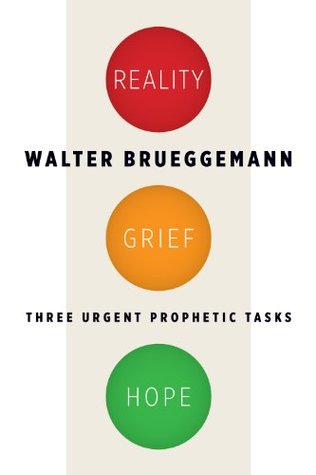More on this book
Community
Kindle Notes & Highlights
Read between
May 24 - July 11, 2022
The outsourcing of jobs to cheap labor markets serves the interest of the oligarchy that controls the flow of money, a control that is less and less interested in the maintenance and well-being of a democratic society. The continuing protest against regulation is in the interest of a predatory culture without restraint, much to the loss of most of our citizens.
The task of the prophetic church, it follows, is to bear witness to the irreducible reality of God and the irreducibility of the neighbor as the reference points for a viable life in the world that even exceptionalism cannot nullify.
The prophets had anticipated, not predicted. They had anticipated because they knew that a public life out of sync with the will of the creator God could finally not be sustained.
Of course the ending was complex. Perhaps it was, as the prophets had said in their elusive poetry, the judgment of God. Or perhaps it was the inexorable outcome of policies of abuse and exploitation in which widows, orphans, and immigrants — the canaries of any social system — had suffered enough. Or perhaps the destruction was simply the consequence of Babylonian expansionism at the expense of a weaker state.
They declare a state of guaranteed well-being, as though it could be established by fiat. But, says the poet, such mantras of self-confidence and self-congratulations in fact are contradicted by reality. There is no such shalom. There is no state of well-being. But that reality lies beyond the purview of the ideologues. The ideology could not tolerate such an awareness, so no such acknowledgement.
The people build a wall of denial, a facade of policy. But the religious leaders do the “whitewash.” They provide the slogans and the mantras and link the whole to God in order to provide false assurances that cover over illegitimate policies. No doubt the leadership types believed those liturgic assurances: All will be well! All manner of things will be well, because God has promised!
The U.S. political economy, abetted by reassuring religion, rests upon an ideology of exceptionalism that both fosters and requires denial.
The U.S. is seen to be a peculiar nation state, grounded in freedom that has transcended the old European patterns of public life, a democracy in which social mobility is available, with energy and imagination that are unrivaled anywhere else in the world.
The action of 9/11 could have led us to review and reconsider the claims of exceptionalism and to come to a fresh appreciation of the alternative dimensions of exceptionalism as a “city on a hill.” But it did not! It did not because the response itself was yet another step in denial.


